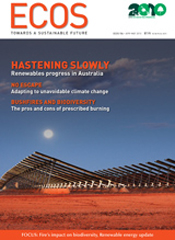
|
Published:
Retailers and food producers move on sustainable palm oil
Woolworths and global food giant Unilever have recently announced measures to reduce the use of unsustainable palm oil products.

|
|
Clearing of orangutan habitat in Borneo for palm oil production. Credit: Fleur Butcher
|
Woolworths has committed to using 100 per cent sustainable certified palm oil in its private-label products (such as Home Brand and Select) by 2015, and has pledged to explicitly label all such products that contain palm oil or its derivatives.
The company will also apply to become the first Australian retail member of the Roundtable on Sustainable Palm Oil (RSPO) – a global, not-for-profit organisation set up to advance the use of certified palm oil in manufacturing. RSPO certified palm oil (‘green palm’) is sourced only from sustainable and well-managed plantations.
Unilever has announced that it has secured enough green palm certificates to cover the requirements of its European, Australian and New Zealand businesses. This is part of Unilever’s overall commitment to buy all its palm oil from certified sustainable sources by 2015.
Palm oil has become a common ingredient in food products due to its high yield and functionality in food processing. Increased global demand for palm oil is putting considerable pressure on tropical rainforests and threatening the survival of native plants and animals such as orangutans in areas of Indonesia and Borneo.



